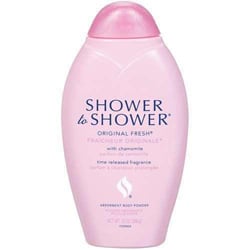 A Missouri state jury slapped Johnson & Johnson ($JNJ) with a $72 million verdict in a case alleging that the company intentionally misled consumers about cancer risks associated with some of its body powder products in order to boost sales.
A Missouri state jury slapped Johnson & Johnson ($JNJ) with a $72 million verdict in a case alleging that the company intentionally misled consumers about cancer risks associated with some of its body powder products in order to boost sales.
After a three-week trial, jurors in the circuit court of St. Louis awarded the family of plaintiff Jacqueline Fox $10 million in actual damages and $62 million in punitive damages, Reuters reports. Fox had claimed that she used J&J's Baby Powder and Shower to Shower for feminine hygiene for more than 35 years before getting an ovarian cancer diagnosis three years ago. She died in October.
While it is not the first time that J&J has lost a case related to the cancer concerns over its powder, it is the first time that a jury awarded damages.
Unsurprisingly, J&J is not pleased with the verdict. The jury's decision "goes against decades of sound science proving the safety of talc as a cosmetic ingredient in multiple products," J&J spokeswoman Carol Goodrich told FiercePharma in an email. "While we sympathize with the family of the plaintiff, we strongly disagree with the outcome."
The company is staying quiet about a potential appeal. "We are evaluating our options," Goodrich said.
Missouri jurors in the recent case found J&J liable for fraud, negligence and conspiracy. The company "knew as far back as the 1980s of the risk" associated with its products, but resorted to "lying to the public" and "lying to the regulatory agencies," said Jere Beasley, a lawyer for the Fox family, as quoted by Reuters.
In 2013, a federal jury in Sioux Falls, SD, found that the company's body powder contributed to plaintiff Deane Berg developing ovarian cancer. But the jury did not award damages in that case, Reuters points out. Meanwhile, J&J is still up against several hundred lawsuits with similar allegations. Valeant Pharmaceuticals ($VRX), which owns the Shower to Shower brand now, is not a defendant in the Fox case.
- read the Reuters story